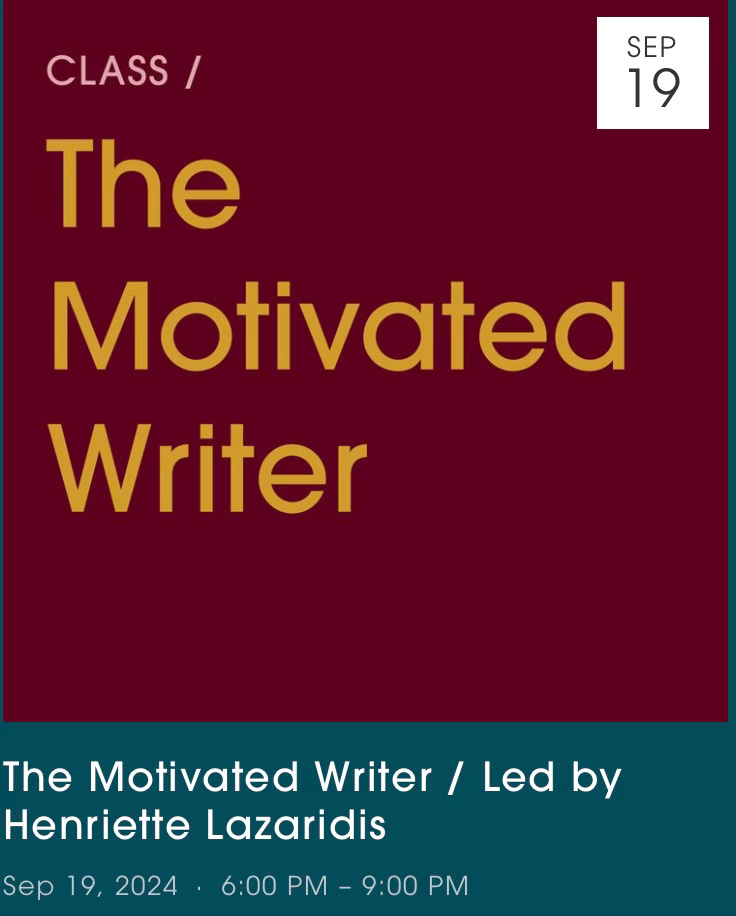Making the most of the shorter days
or, why I like darkness
The days are getting shorter and this makes me happy. It’s standard procedure at this time of year in the northern hemisphere to bemoan the early sunsets and the pitch-black mornings. But, for me, the shortening days come with a positive: this is the time of productivity, of creativity. If the weather is going to be gray and gloomy, and the sun is going to go down a a mere 13 hours after it rose (by today’s data), I say bring it. If it’s going to rain? That’s a cause for celebration. Let me get to my desk and work!
But by “work” I mean, specifically, engage with a book, with words. They don’t even have to be my own words. As long as someone’s words are out there, creating a fictional world I can enter into, that’s what I want. And that’s what fall seems to me to be uniquely suited to: the crossing over into a world invented by language.
Maybe it’s because autumn possesses something of the Celtic Samhain, when the boundary between the seen and the unseen is thinnest. Or maybe it’s because the darker and cooler weather forces us indoors where we more easily surround ourselves in abstraction. Autumn lends itself to the experience of sinking into imagined worlds, to slipping away from the calls of reality. Or, I’d argue that the very reality of autumn invites withdrawal from it, while summer’s reality commands us (sometimes relentlessly) to engage with the world around us.
Surely all this forms part of my attitude. But in addition, I think I’ve imprinted on autumnal weather the way a duck imprints on the first creature it sees.
As the child of Greek immigrants, I grew up spending three months each year in a landscape blindingly white where summer sunsets (thanks to positioning in the time zone) came extra late. You’d think I’d have imprinted on that sun-bleached landscape. But the corollary to those summers was my annual return to New England and to school. Suddenly, in the course of one airplane flight, I would arrive in a world of humidity, early sunset (that time-zone positioning again), and cool. I’d put on long pants for the first time in months. I’d grab a jacket to go play among oaks and pines and already-beginning-to-turn maples. School, books, studying (all of which I loved): those all came with the dark. And that, more than any sun, was what my brain learned to crave. By the time I went to England for the first of three years during college and grad school, I was already a perfect customer for rainy days.

I’ll write any time of year, don’t get me wrong. And I’ll immerse myself in reading an amazing book no matter how long the days are. But if I had my choice, it would be raining every day I was at my desk working on a novel, or curled up in a chair with a good book.
This fall, I’m deep in a revision (a rewriting, really), and even though I’m parceling out my novel-work time in small bits on the edges of my work with the publishing start-up Galiot Press, I’m able to keep my brain in that imaginary world over long stretches—because of the dark. Somehow it’s easier to string together short sessions of imagination at this time of year. It’s as if the in-between periods of practical engagement never fully pull me to the surface, or as if a part of my brain more easily stays connected to the work of the imagination.
I’m mindful of the calendar. Soon enough the days will start to get longer again, and while the rest of the world will rejoice at that development, I’ll pine a little for the productive days of the dark.
And speaking of productivity, readers of The Entropy Hotel know by now that I’m always looking for ways that athletic endeavors can teach us about creativity. I’ve long taught a seminar I call The Motivated Writer that takes people through some organizational and motivational strategies borrowed from sports and applicable to creative work. I’ll be teaching that online class next on September 19th. Whether or not you're an athlete, if you’re interested in boosting your motivation as a writer, this class is for you. Check out the info here!



